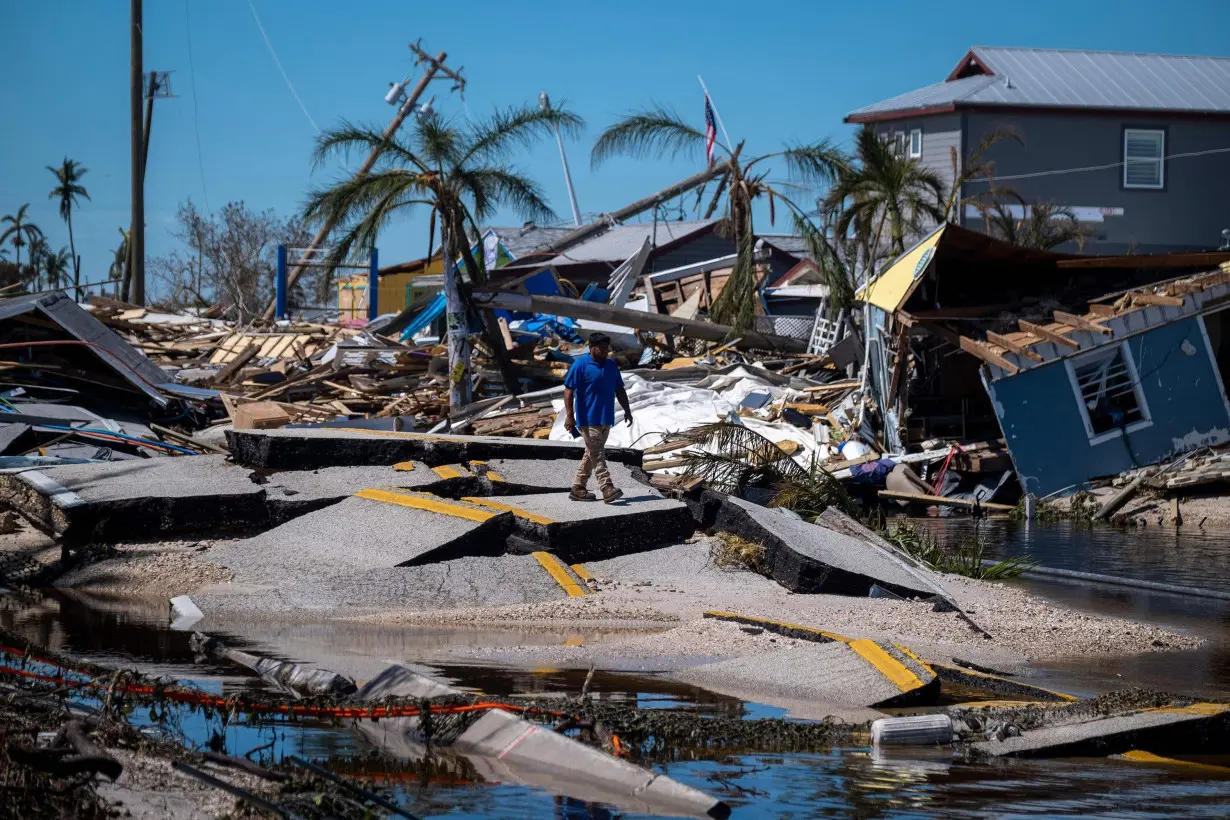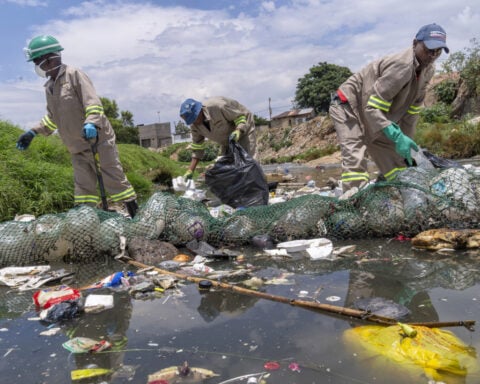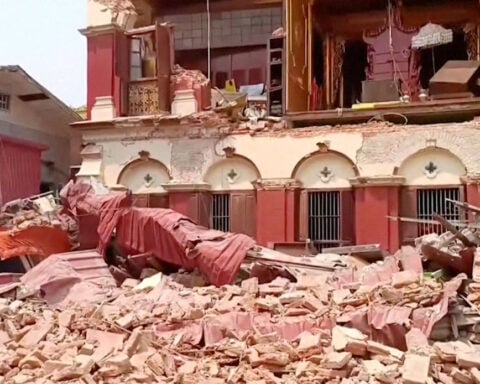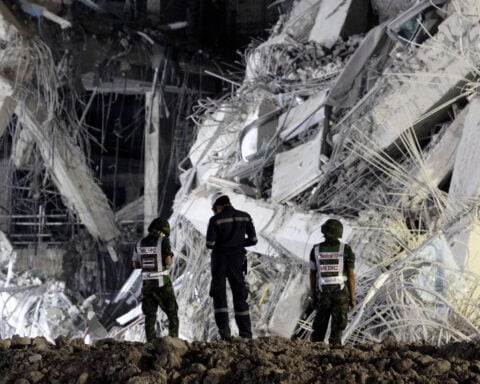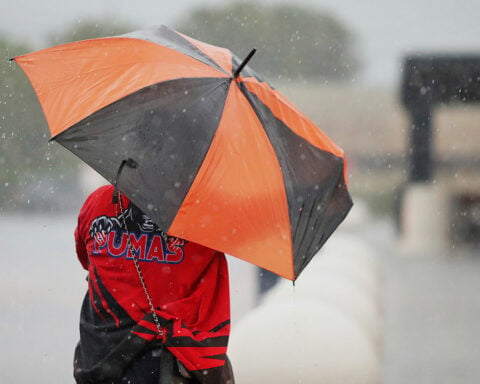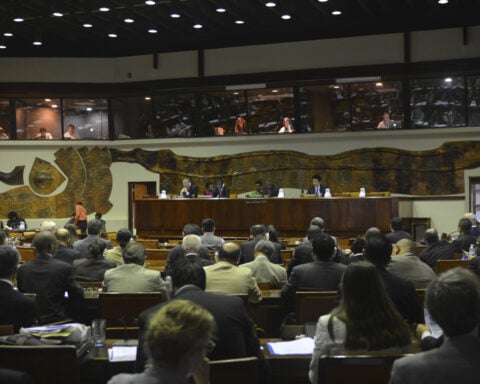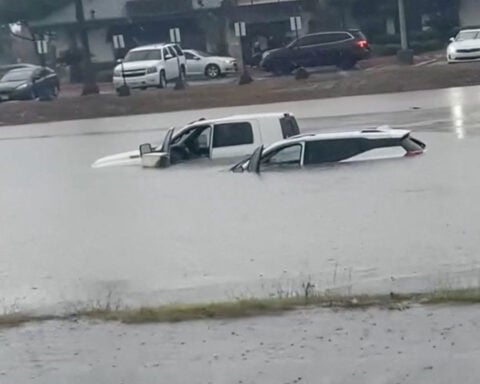(CNN) — Hurricanes aren’t what they used to be. As the planet warms, they are morphing into something more dangerous — intensifying faster, producing more rainfall and generating bigger storm surge.
To protect ourselves from these increasing threats, researchers say hurricane preparedness and the way people perceive storms need to proactively change, as well.
“We want to make sure that people are not being complacent, (know) that these storms are intensifying more because of climate change, and that they are taking that seriously,” Jaclyn Rothenberg, director of public affairs for the Federal Emergency Management Agency, told CNN.
Evacuate or stay put?
More than 90% of global warming over the past 50 years has taken place in the oceans. Hurricanes are taking full advantage of the additional energy, getting stronger faster – and sometimes right before landfall.
Rapid intensification is giving people little to no time to evacuate; officials and coastal residents who may have been expecting a Category 1 hurricane when they went to bed might wake up to a Category 3.
Several hurricanes in the past few years, including Hurricane Ian, which devastated the southwest Florida coastline.
Emergency managers may not order evacuations because hurricanes are rapidly intensifying after the evacuation window has closed, said Samantha Montano, a disaster researcher at the Massachusetts Maritime Academy.
More often now, coastal residents will find themselves sheltering at home.
“We’ve not necessarily put the resources and time into figuring out the most effective way of priming the public to understand what sheltering in place for a potentially major hurricane actually looks like,” Montano told CNN.
That means having enough food and water for an extended period in the event of power outages. It may also mean having a backup generator as well as a solar charger for your phone if you can afford it, Montano added.
Prepare for more than just a hurricane
Temperatures soared in Texas after Hurricane Beryl made landfall this summer. The heat index shot to more than 100 degrees while roughly 2.2 million customers didn’t have power, and importantly, air conditioning.
Hospitals were quickly overwhelmed with people suffering from heat illness.
Rethinking preparedness plans that consider other extreme disasters require “different layers of decision- making,” said Andrew Kruczkiewicz, a senior researcher at Columbia University’s Climate School. Prepare as if you’ll get stuck in one place longer than anticipated, Kruczkiewicz said.
Stock up on non-perishable food and make sure it’s stored in a place that isn’t at risk of flooding. Make sure you have extra essentials, too, and a first-aid kit.
“This expectation that we’ve kind of historically had in the US that it’ll be no more than 72 hours until help comes is not necessarily the case anymore,” Montano said. “So, people need to make sure that they have, to the best of their ability, as many supplies as possible.”
Finally, know where officials are setting up shelters in your community. These shelters could provide necessities to survive, including air conditioning, food and a safe place to sleep.
Respect low categories
Hurricane categories are based on the storm’s wind speed and don’t say anything about its storm surge or flood risk.
“The type of impact that we’re seeing, even if we talk about a Category 1, is different now,” Kruczkiewicz said, noting that Category 1 storms now carry intense rainfall and can also generate widespread storm surge.
Individuals need to dismantle their “perception and pride, thinking we could handle it” when the storm is a low category, he added.
“The actions (we can take) may still be appropriate, but they may have to be enhanced in different ways,” Kruczkiewicz said.
Rethink where you’re getting info from
With many different sources of news and information, “decentralizing and democratizing information is important,” Njoki Mwarumba, assistant professor of emergency management at SUNY Empire State University, “but it has to be reliable.”
In doing so, Kruczkiewicz said go beyond and ask yourself the following questions: “Why am I using this data source? Maybe I use my iPhone app for day-to-day weather but is that really the best app when I’m making life- or- death decisions for my family on how to prepare?”
Experts say it is imperative for people to listen to local emergency managers, and monitor weather forecast and information coming from the National Hurricane Center or National Weather Service.
“Know your source,” Kruczkiewicz said. “And take that source very seriously.”
The-CNN-Wire
™ & © 2024 Cable News Network, Inc., a Warner Bros. Discovery Company. All rights reserved.

 Trump has begun another trade war. Here's a timeline of how we got here
Trump has begun another trade war. Here's a timeline of how we got here
 Canada's leader laments lost friendship with US in town that sheltered stranded Americans after 9/11
Canada's leader laments lost friendship with US in town that sheltered stranded Americans after 9/11
 Chinese EV giant BYD's fourth-quarter profit leaps 73%
Chinese EV giant BYD's fourth-quarter profit leaps 73%
 You're an American in another land? Prepare to talk about the why and how of Trump 2.0
You're an American in another land? Prepare to talk about the why and how of Trump 2.0
 Chalk talk: Star power, top teams and No. 5 seeds headline the women's March Madness Sweet 16
Chalk talk: Star power, top teams and No. 5 seeds headline the women's March Madness Sweet 16
 Purdue returns to Sweet 16 with 76-62 win over McNeese in March Madness
Purdue returns to Sweet 16 with 76-62 win over McNeese in March Madness
